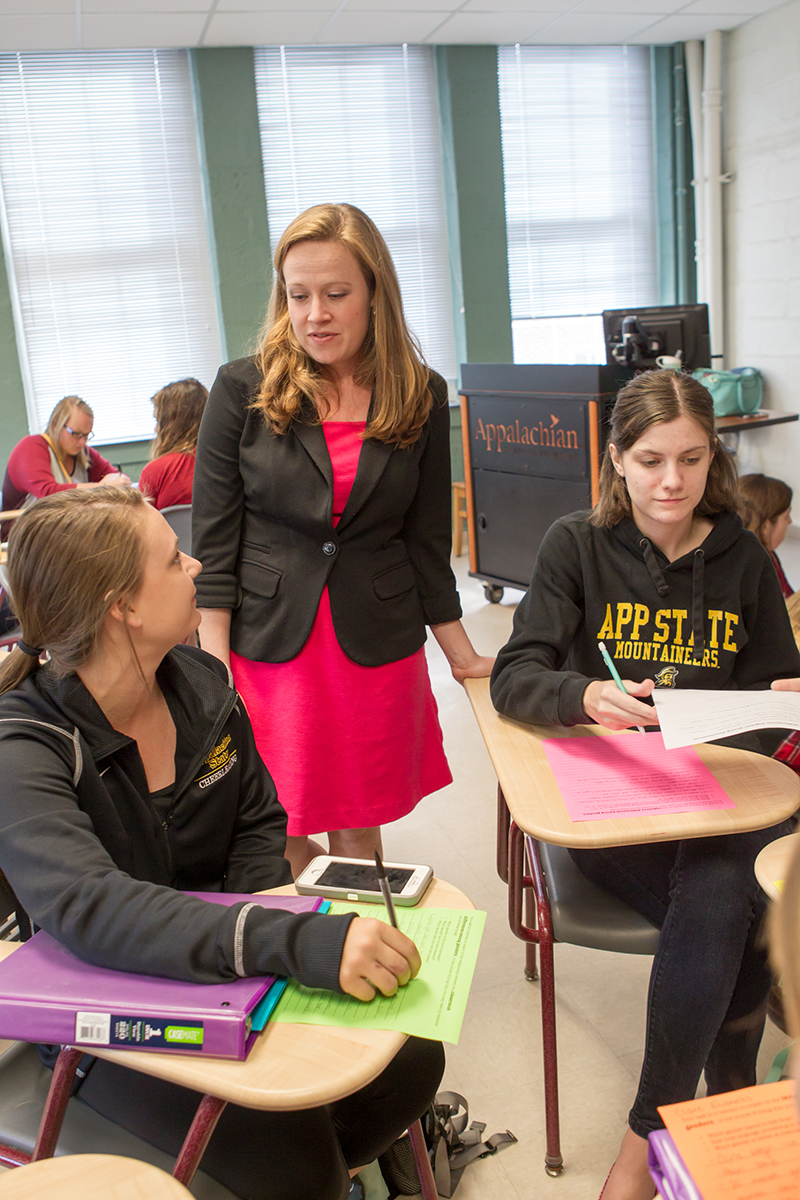Dr. Lindsay Masland is an assistant professor in Appalachian’s Department of Psychology. Her research focuses on what motivates student achievement and engagement. She is among faculty members teaching in the Psychology (BS) - Education Studies degree program.
What excites, motivates or inspires you about this degree field? Growing up, I was a strong student, so it’s no surprise to my friends and family that I chose to make education my profession. The thing that drew me to the fields of educational and school psychology in particular, though, was growing up alongside a sibling with unique learning needs. As such, I started orienting towards understanding the science behind what makes for a good learning environment, as well as how that environment must change to meet the needs of a diverse array of student learners.
Today, the thing that excites me about education studies in psychology is the ubiquitousness of the field – everyone must go to school, and for our society to progress, everyone must learn. It’s exciting to know that the discoveries I uncover in my psychology lab today could be used to improve the classroom environments for the teachers of tomorrow, which could affect the academic and psychological well-being for thousands of students in the future.
Why did you choose to come to Appalachian to teach?
Appalachian’s intentional balance between research and teaching. I wanted to teach at a university where my interests in advancing the science of teaching would be supported.
What is your research specialty and how does it fit into and/or strengthen your teaching?
I study instructor effects on student motivation. Although I started this research path with 3rd-5th graders as my subjects, I’ve moved into focusing primarily on college student motivation. As such, my research informs my teaching in a very real way, because it would be pretty hypocritical for me to study motivation but to be an unmotivating professor!
What do you hope students take away from the classes you teach?
This may be an unpopular perspective on college education, but I actually don’t care if my students never learn a single fact from me. I am far more interested in teaching my students how to learn so that they are able to continue the task long after they’ve left me. This means I have a huge focus on teaching my students how to ask skeptical, critical questions and how to answer those questions with evidence, as opposed to less rigorous sources of information such as intuition.
If I do my job correctly, in the words of Sir William Haley, “by the time they leave school every . . . [student] should know how much they don’t know, and be imbued with a lifelong desire to know it.” And if they come away emboldened that they just might be able to disrupt current systems of education that are hindering student learning, well, then that’s pretty great, too!

